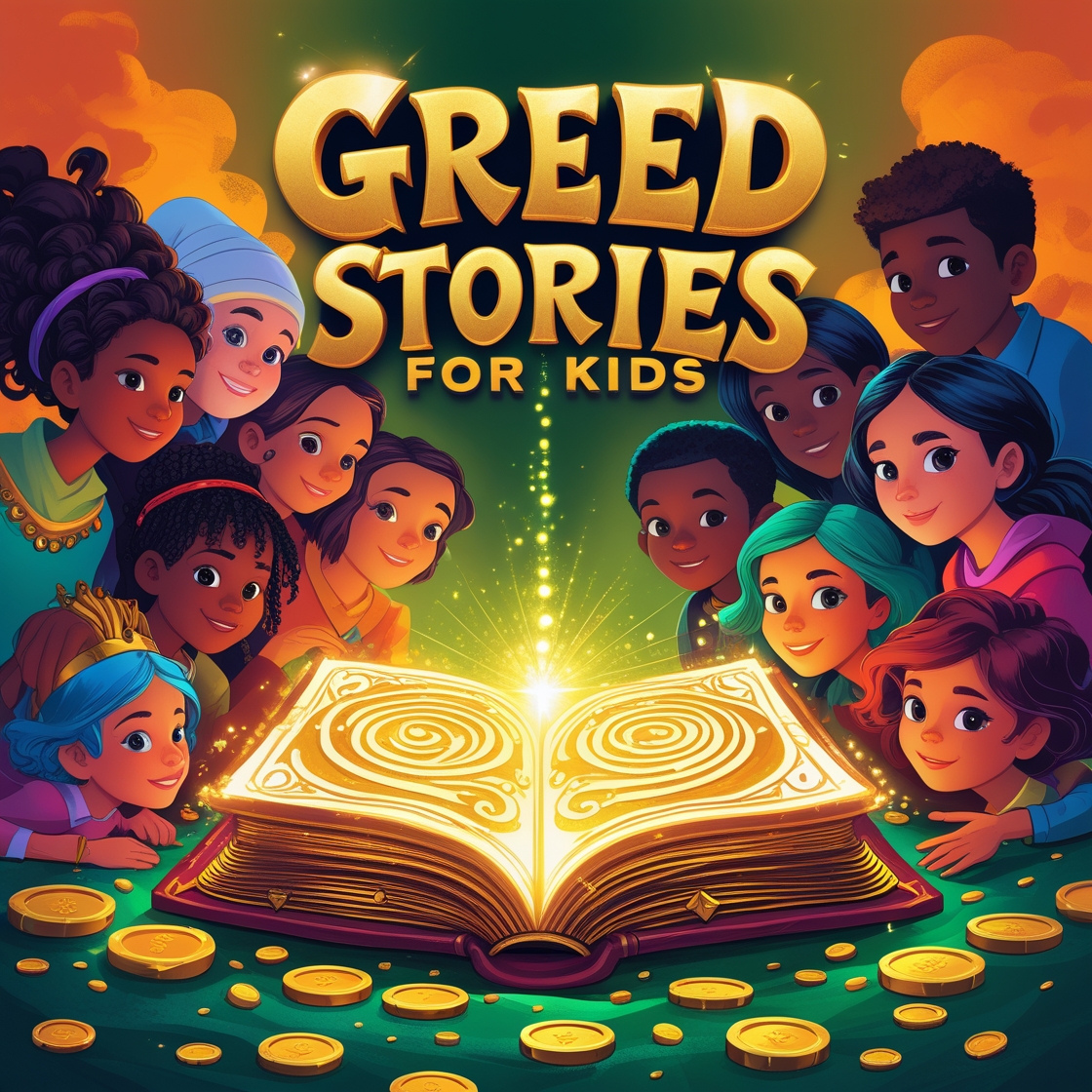Greed stories have always carried timeless lessons about selfishness, excess, and the importance of gratitude. In this collection on InspiredNap, you’ll discover powerful tales like The Greedy Squirrel, The Dragon’s Gold, and The Magical Candy Jar, each reminding us that wanting too much often leads to loss, while sharing and kindness create true happiness. These moral stories are not just for kids but also for adults seeking reflection in today’s fast-paced world. If you enjoyed these parables, explore more uplifting reads in our Kindness Stories, Friendship Stories, or Bravery & Courage Stories collections. Together, they show that the path to real contentment is not in having more but in appreciating enough and choosing generosity.
The Story Of Greedy Squirrel

Once upon a time, deep in the forest of Willow Woods, lived a squirrel named Sammy. Sammy was clever and quick, but also a little too greedy.
Every autumn, the animals would collect food for the cold winter months. Sammy didn’t just collect nuts he hoarded them. While others gathered enough to last them through winter, Sammy wanted all the nuts in the forest. He darted from tree to tree, filling his treehouse with walnuts, chestnuts, and acorns until the space was stuffed from floor to ceiling.
But when winter came, Sammy had a problem: he had no space left to sleep! He tried to lie down, but nuts spilled everywhere. He couldn’t even reach his door. Cold and tired, he had to sleep outside in the snow while his friends stayed warm inside their cozy homes with just enough food.
Sammy learned the hard way: too much of a good thing can become a bad thing.
Moral: Greed leaves no space for comfort.
The Magical Candy Jar
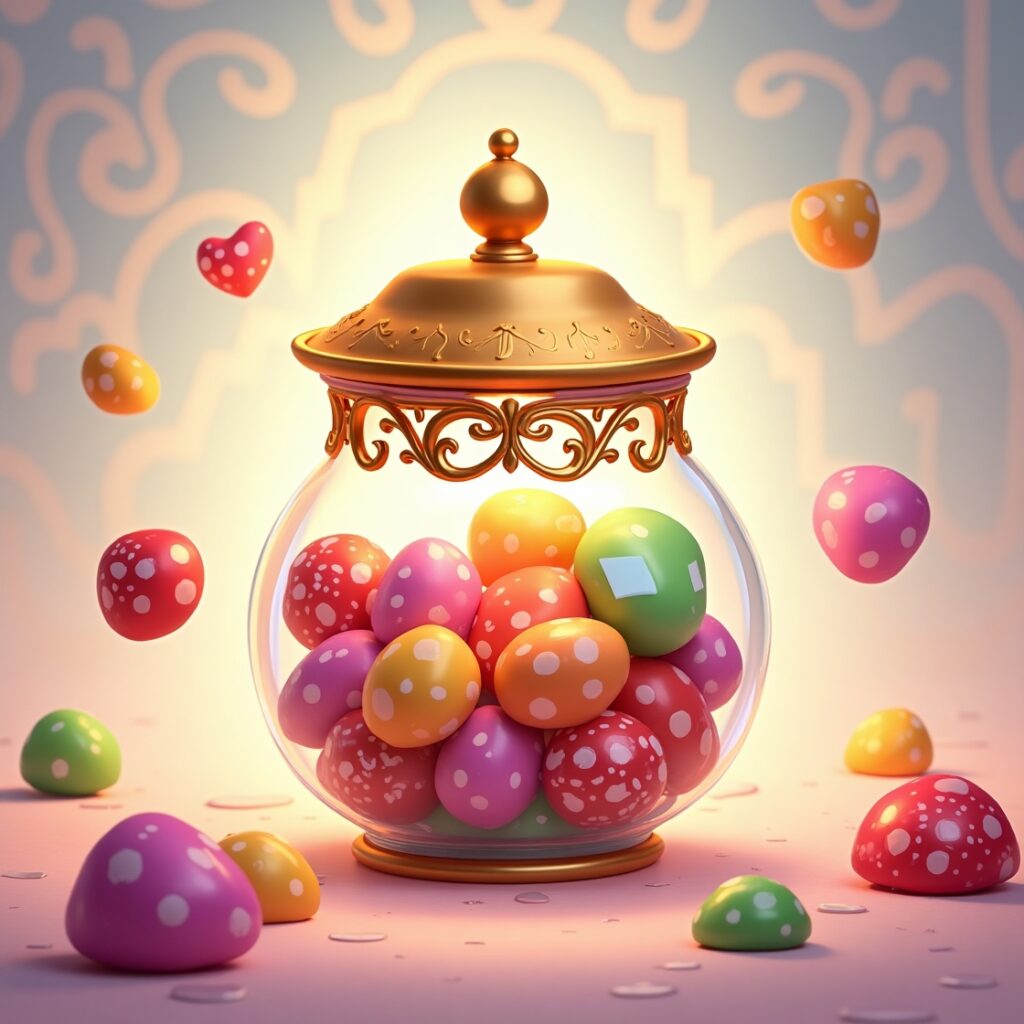
In a small village, lived a sweet girl named Meera. One day, while cleaning her grandmother’s attic, Meera discovered a shiny jar labeled: “One Candy a Day Forever.”
Excited, she opened the lid and found a delicious candy. The next day, another appeared.Meera was overjoyed and told no one about her magical jar.
But soon, her happiness turned into greed. “What if I could take all the candy at once?” she thought. So one night, she tried to scoop out every candy from the jar. But no matter how much she grabbed, the jar stayed empty.
The next morning, the jar vanished into thin air.
Meera sat in silence, realizing that if she had been content with one candy a day, she could’ve enjoyed treats forever.
Moral: Don’t take more than you need.
The Dragon’s Gold
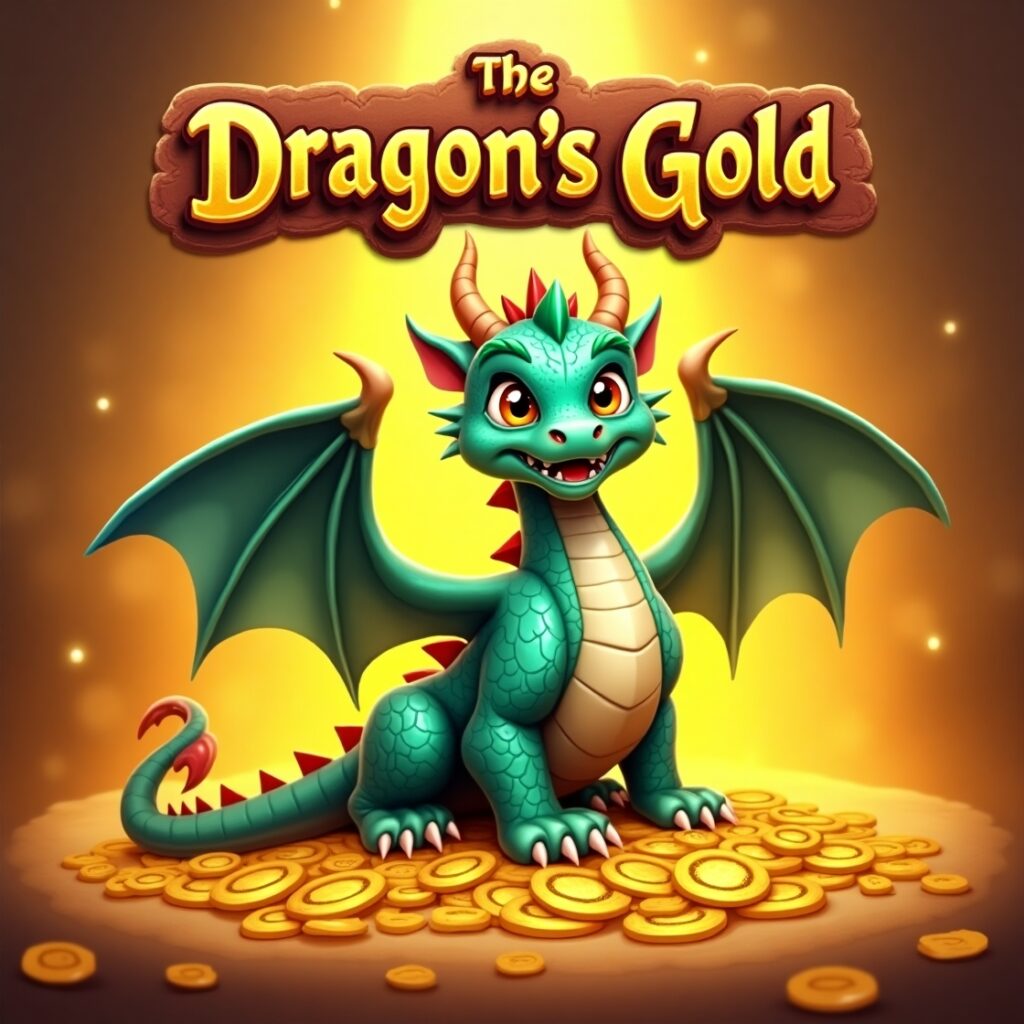
Long ago, in the Valley of Echoes, lived a gentle dragon named Doru. Unlike the fierce dragons in stories, Doru loved people and often shared his treasure of golden coins with villagers in need.
One day, a boy named Ronan visited the dragon. Doru offered him a handful of coins, but Ronan wanted more. That night, he sneaked into the dragon’s cave to steal the rest.
But as soon as Ronan touched the golden pile, the cave walls glowed, and a magical spell froze him in place. Doru awoke and sighed sadly. “Greed,” he said, “always reveals the truth.”
Ronan remained frozen for a year, dreaming of all the ways he could have simply asked and shared.
Moral: Greed breaks trust and brings trouble.
The Talking Tree’s Warning
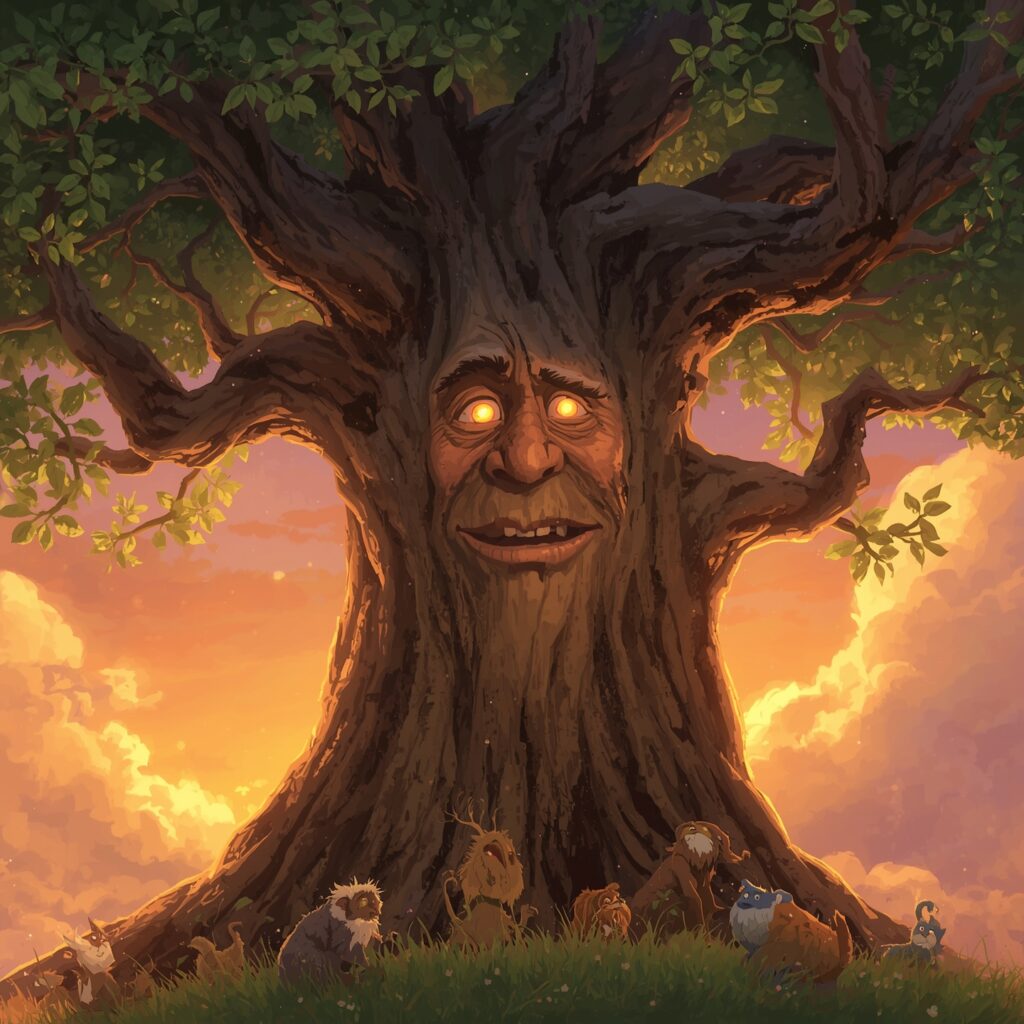
There was a wise old tree in the village of Banjarpur. It bore golden fruits that could cure any illness. The rule was simple: one fruit per person, only when needed.
One day, a boy named Golu climbed the tree and shook it violently, hoping to gather more fruits to sell in the market. The tree groaned, “Golu, take only what you need.”
But Golu didn’t listen. He pulled and yanked until a branch snapped and all the fruits turned to stone.
The tree whispered, “You chose profit over purpose.”
Golu returned home empty-handed and ashamed, having destroyed a gift meant for all.
Moral: Take what is offered with gratitude.
The Princess and the Pearls
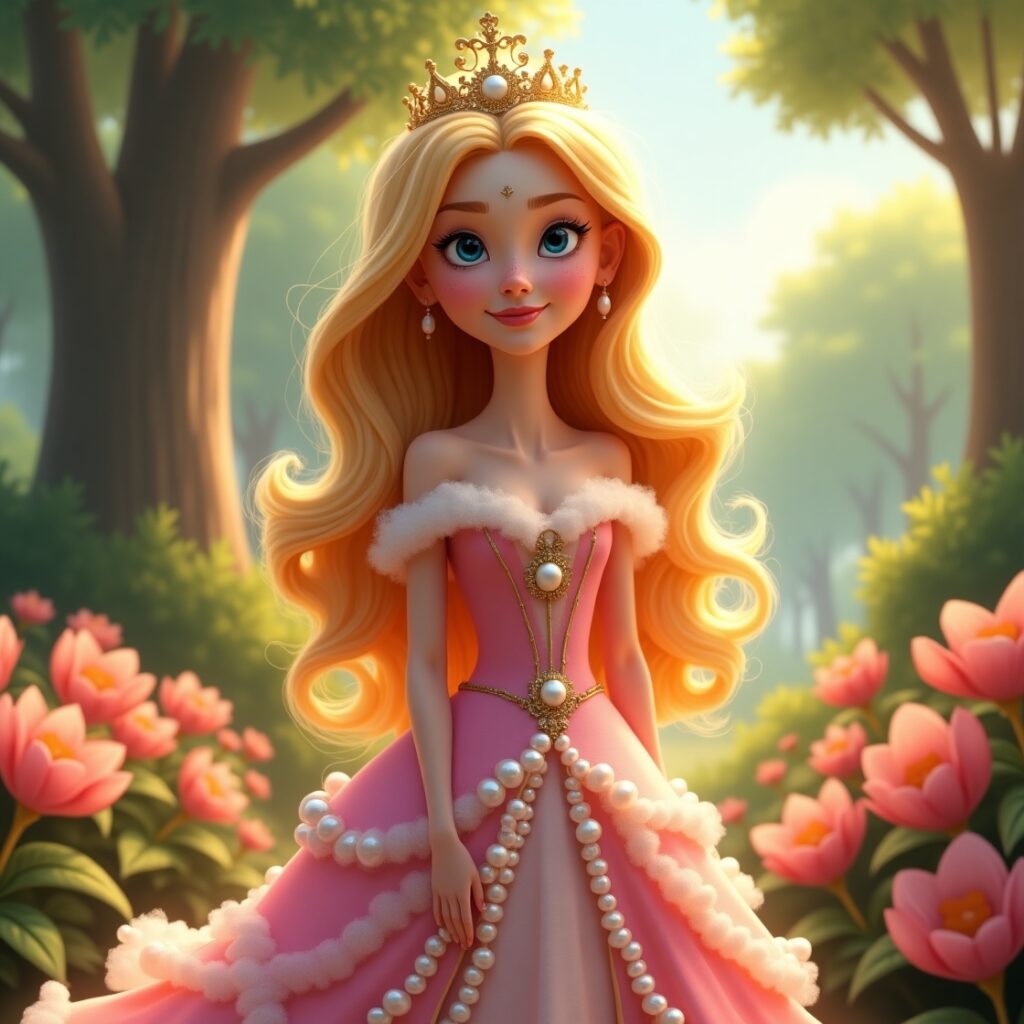
Princess Rina was gifted a magical necklace by the Moon Fairy on her 10th birthday. Each pearl on the necklace granted one wish but only if the wish was kind and meaningful.
At first, Rina used the pearls wisely. She wished for her sick kitten to get well, for sunshine during her mother’s garden party, and for enough books for all the children in the kingdom.
But soon, she became greedy. She wished for a golden swing, a hundred dresses, a tower made of chocolate, and even for her brother’s voice to disappear when he annoyed her.
One day, she said, “I wish to own every wish in the world.” At that moment, the pearls turned black and crumbled into dust.
The Moon Fairy appeared and said gently, “Wishes are gifts, not possessions. You tried to hold the sky in your hand.”
Rina never forgot that moment and grew to be a generous, thoughtful queen.
Moral: Wanting too much can make you lose everything.
The Greedy Robot

In the land of Tinytown, there was a robot named Blink who worked at the Toy Factory. Blink had one simple job pack toys into boxes. But over time, he began to feel curious. Why should others have the toys?
So, Blink started keeping the best ones for himself trains, dolls, flying saucers. He stashed them inside his storage compartments. The more he collected, the heavier he got.
One day, Blink waddled too slowly and slipped on a marble. CRASH, All the toys tumbled out, and his gears jammed from the overload.
The Toy Maker looked at Blink kindly and said, “Toys are made to bring joy not to be hidden away.”
They rebuilt Blink and gave him a new job: helping children choose toys at the store. He was happier than ever because he saw smiles every day.
Moral: Greed can break what could have worked well.
The Invisible Coins

In the town of Harmony Hills, a mysterious traveler left behind a chest with a note:
“These invisible coins appear only when kindness is true.”
Children lined up to try. Some shared food, others helped elders across the road. With every genuine act, golden coins shimmered into their pockets.
But one boy, Rinku, pretended. He only helped when someone was watching, smiled when he wanted coins, and bragged when he thought no one was listening.
He waited and waited but the coins never came.
Frustrated, he yelled at the chest. It remained still.
An old woman whispered, “Greed may wear a kind face, but only the heart speaks truth.”
From that day on, Rinku helped quietly and for real. And when he did, the first coin finally appeared.
Moral: Greed cannot hide behind lies.
The Hungry Cloud

Once upon a time, in a bright blue sky, there lived a fluffy white cloud named Nimbus. Nimbus was cheerful, kind, and always shared his rain with the thirsty fields and sleepy flowers below.
One day, Nimbus saw a group of clouds passing by, heavy and dark with rain.
“Where are you going?” Nimbus asked.
“We’re going to rain on the sunflower fields!” one cloud said. “They give us golden thank-you waves.”
That sounded fun! But when Nimbus tried to join them, he had only a tiny bit of rain left.
“You’re too light,” they said. “You need more rain to come with us.”
Nimbus felt embarrassed. “I’ll get more rain,” he thought. “Much more.”
So Nimbus began to gobble up all the water vapor in the sky. He sipped from lakes, slurped from rivers, and even licked dew from the morning grass. Day by day, he grew bigger…and darker…and heavier.
Soon, Nimbus was HUGE. So big, he blocked out the sun and scared the birds. “Now I can rain on everything” he boomed.
But as he flew over the land, he didn’t share his rain. “No, not yet. I want to find the perfect place to show how powerful I am.”
He passed the dry gardens.
He passed the thirsty forest.
He passed the cracked desert.
“Not special enough,” he said, growing grumpier.
But Nimbus had eaten too much.
With a loud RUMBLE, he couldn’t hold his rain anymore.
It poured.
And poured.
And poured.
But he was over the mountains. No flowers. No trees. No people to thank him.
The rain crashed down the cliffs, caused floods, and washed away paths.
“Oh no!” cried Nimbus. “I didn’t help anyone. I only made trouble…”
A gentle breeze whispered, “Rain is meant to be shared. Greed turns a gift into a storm.”
Nimbus felt ashamed. But he had learned his lesson.
From then on, Nimbus never waited too long or took more than he needed. He shared his rain with joy and everywhere he went, life bloomed and birds sang his name.
Moral:
Greed can turn a blessing into a burden. When we share what we have, everyone including us feels happier.
The Greedy Puppet
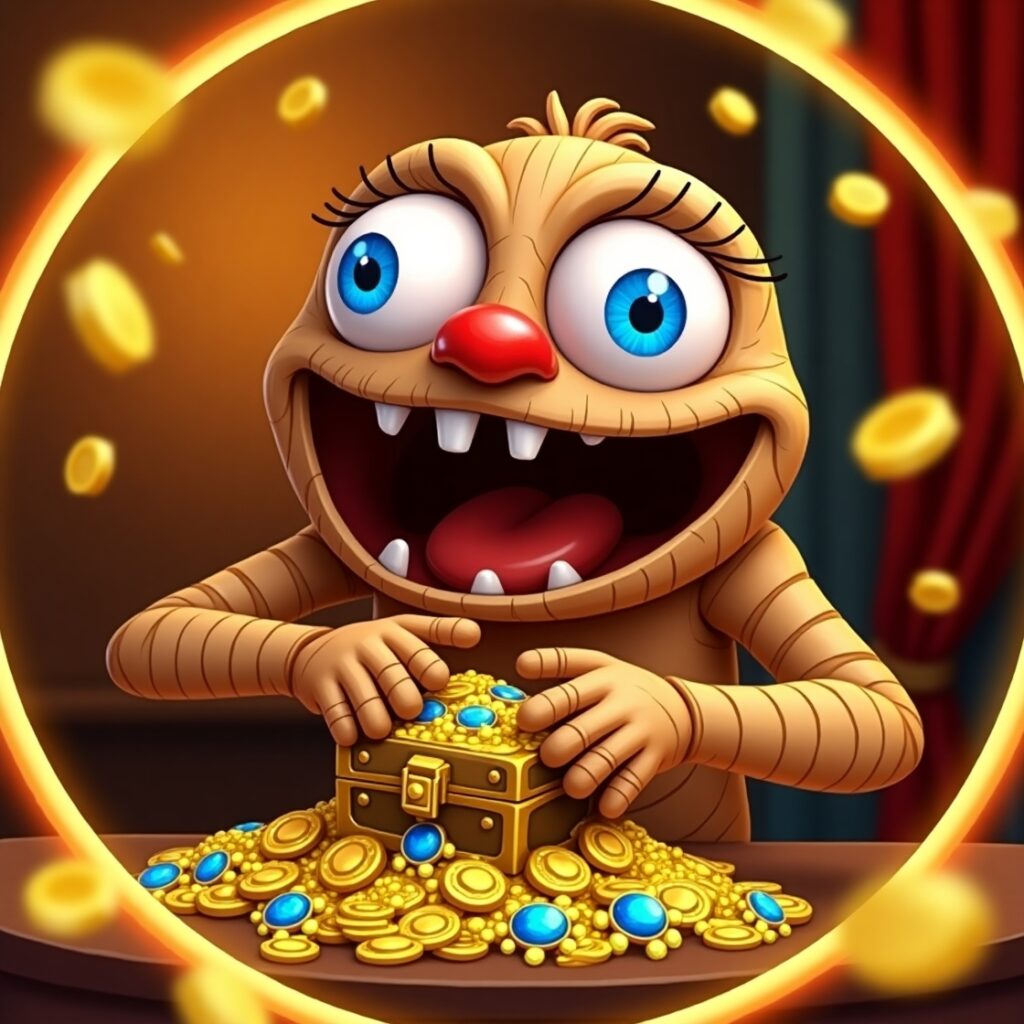
In a wooden workshop lived a puppet named Jako. He danced, played, and made children laugh. But deep inside, Jako wanted more.
“I want to be real… and rich!” he said. “I’ll be the richest person in the world!”Up in the sky floated a little white cloud named Nibby. Nibby had a job: to collect water and sprinkle gentle rain across the land.
One night, a falling star passed by. Jako wished to become a real boy but only so he could own treasure chests, mansions, and endless cake.
The star paused and said, “Wishes from greedy hearts don’t grow.”
The next day, Jako saw another puppet helping a child find her lost kitten. The puppet glowed and turned into a real boy.
Jako felt a splinter in his wooden chest. It wasn’t pain it was sadness.
From then on, Jako stopped chasing gold and started bringing joy again. And maybe, just maybe, one day the star would pass by again.Moral: Greed changes your heart before your fate.
The Magical Pencil

A boy named Arav loved to draw. His notebooks were filled with castles, dragons, and magical creatures. One day, his grandfather gave him an old pencil with a curious note:
“What you draw will come true use it wisely.”
At first, Arav drew an apple when he was hungry, and it appeared. Then a bicycle, then a puppy, then an entire playground! The pencil obeyed.
But soon, Arav wanted more. He drew a pile of money, golden toys, mountains of chocolates everything he ever dreamed of. His room was filled to the ceiling with clutter.
He didn’t go outside, didn’t play with his friends, and stopped drawing for fun. He just drew more.
One day, the pencil snapped in half. Arav stared at his room full of “stuff” but felt lonelier than ever.
He realized that joy doesn’t come from having everything but from creating something meaningful.
Moral: Endless greed leaves no joy behind.
The Fox and the Cake Factory

In the bustling town of Sweetville, there lived a clever fox named Felix. He invented a cake-making machine that could bake any dessert you imagined chocolate towers, jellybean cupcakes, strawberry waterfalls.
Felix invited everyone to taste his creations. Kids danced, birds sang, and all was merry.
But one day, Felix thought, “Why should I share? I built the machine. I should eat everything myself.”
So he locked the doors to the factory and ate cake after cake, morning to night. But soon, he grew sick. Not only did he miss his friends, the cakes began to taste… boring.
Worse, the machine, powered by laughter and happiness, stopped working.
Lonely and sad, Felix reopened the doors. The children returned, laughter echoed again and the machine hummed to life.
Felix smiled, learning that sweetness is best when shared.
Moral: Greed tastes sweet for a moment, bitter forever.
The Bag of Endless Marbles

Tia was a girl who loved marbles more than anything. One day, she found a glowing velvet bag under an old tree. A note read:
“One marble each day play, don’t store.”
She took one out and it shimmered with magic. When she rolled it, it made music and showed colors like a rainbow. Every day, a new one appeared.
But Tia had an idea. “What if I collect them all and never play?” So she stopped rolling them. She just stuffed the magical marbles into boxes, jars, drawers even her pillowcase.
Soon, the magic faded. The marbles lost their glow. The next morning, the bag was empty.
Tia stared at her dull collection. She hadn’t played. She hadn’t laughed.
Tears welled in her eyes, and she whispered, “I was too greedy to enjoy them.”
From that day, she played with her friends using the marbles she had and laughter brought back a little sparkle.
Moral: Greed robs you of fun.
The Greedy Little Wizard

Nimo was the youngest wizard at the Magic Academy and also the most ambitious. He didn’t just want to learn spells; he wanted all the spells. In one day.
He sneaked into the library at midnight and cast the forbidden Spell of Gathering a greedy enchantment that summoned every spell in the world into his tiny brain.
But magic is tricky. His thoughts grew noisy. Spells mixed and tangled. He accidentally turned his shoes into frogs and made it rain spaghetti indoors.
Soon, all the magic in the academy fizzled out. His friends couldn’t even light a candle.
“I wanted to be the best,” Nimo whispered to his teacher.
“You forgot,” the wise owl said, “magic isn’t power. It’s my responsibility.”
With help, Nimo reversed the spell and slowly, carefully, began learning magic the right way. One kind spell at a time.
Moral: Greed takes away the very thing you love.
The Lake of Wishes

In a peaceful village nestled between hills, there was a shimmering lake said to grant one wish per year. The villagers took turns, using the wish for the good of all like healing the sick or ending a drought.
One year, a man named Harsh snuck to the lake at midnight. “Why share a wish,” he muttered, “when I can have them all?”
He dropped a stone into the lake and wished, “I want every wish that was ever made here all mine.”
The lake fell silent.
The next morning, the water had dried up. The lake was gone.
The villagers were heartbroken. No more healing water. No more magic.
Harsh confessed and cried, “I wanted everything… now we all have nothing.”
An old woman touched his hand and said, “Greed turns wishes into wounds.”
They worked together to rebuild the lake with kindness and care. And after many years, the lake shimmered once again but never forgot the lesson.
Moral: Greed ruins blessings meant for everyone.
The Story About Greediness
Title: “The Lake of Wishes”
Once in a quiet village, there was a mysterious lake hidden deep in the forest, known as the “Lake of Wishes.” The lake was magical it could grant any wish, but only once per person.
One day, a poor man named Haran found the lake by accident. He wished for a bag of gold and poof. It appeared. Overjoyed, he ran back to the village, bought land, built a house, and lived well.
News spread, and people went into the forest one by one. Each made one wish some for health, others for family or food.
But a man named Raghu was different. When he reached the lake, he asked for a mountain of gold. His wish was granted. But greed took over. He disguised himself and returned the next day, asking for diamonds. To his shock, the lake remained still.
Raghu got angry. He built boats, burned forests, and tried to drain the lake to force it to give more. But one night, the water rose violently, flooding his home and washing away his treasures.
The villagers watched as Raghu stood on a hill, ruined and alone. His greed had taken everything.
Moral: Greed takes more than it gives.
Story Of Greedy Man
Title: “The Endless Bag”
Once lived a rich merchant named Soman who always wanted more. One day, a sage gave him a magical bag. “It will give you anything you desire,” said the sage, “but never be greedy.”
At first, Soman asked for silver, then gold, then jewels and the bag gave him everything. But soon, Soman wanted palaces, horses, kingdoms.
Every day he demanded more armies, oceans, skies. Until one day, he asked for everything in the world.
The bag trembled… and swallowed him whole.
The sage returned to the empty mansion, picked up the bag, and said, “A greedy man is never full.”
Moral: Greed leads to one’s own destruction
A Greedy Dog Short Story
Title: “The Dog and His Shadow”
One day, a hungry dog found a juicy bone and happily carried it in his mouth as he crossed a bridge over a river.
Looking into the water, he saw another dog holding a bigger bone.
Without realizing it was his own reflection, the greedy dog barked to snatch the other bone and in doing so, dropped his own into the river.
He ended up with nothing.
Moral: Greed can make you lose what you already have.
Story Of Greedy Fox
Title: “The Fox and the Grapes”
In a vineyard near the woods lived a clever fox who always wanted the best of everything. One day, he saw a bunch of ripe grapes hanging from a tall vine.
He jumped once missed.
He jumped again still missed.
After many failed attempts, he walked away grumbling, “Those grapes are probably sour anyway.”
But deep down, he was simply greedy and upset that he couldn’t have what he wanted.
Moral: It’s easy to hate what you can’t have out of greed.
Story On Greediness
Title: “The Golden Touch”
King Midas was a ruler who loved gold more than anything. One day, he helped a stranger, who turned out to be a powerful spirit. In return, the spirit granted him one wish.
Midas wished that everything he touched would turn to gold.
At first, he was thrilled. His bed, his chair, his flowers all gold.
But then, he hugged his daughter, and she turned into a statue.
Heartbroken, Midas begged to undo the wish. The spirit had mercy and took back the golden touch.
From that day on, Midas learned to love people over riches.
Moral: Greed can blind you to what truly matters.
Story On Greedy Farmer
Title: “The Farmer and the Golden Eggs”
A poor farmer had a hen that laid one golden egg each day. He sold it and slowly became rich.
But he grew impatient. “Why wait for one egg a day? The hen must be full of gold.”
So he killed the hen to get all the gold inside only to find it was just a normal hen.
He lost everything in his greed.
Moral: Greed destroys the source of goodness.
Writer’s Introduction
Greed has fascinated storytellers for centuries, weaving its way into folktales, myths, and modern narratives. As a writer, I’ve always believed that stories about greed are not merely warnings but mirrors reflecting our constant struggle between desire and contentment. In this collection, I’ve created five long, original stories with unique characters, each highlighting how greed can twist hearts, strain relationships, and even destroy entire worlds. These aren’t just tales for children but timeless reminders for all ages.
1. The Golden Orchard of Elandra
The Kingdom’s Secret Orchard
Long ago in the lush kingdom of Elandra, there was a secret orchard known only to the royal family. The orchard’s trees bore golden apples that sparkled under the moonlight, said to be gifts from the Sun Goddess herself. The apples were never sold, only used in ceremonies and to feed the poor during harsh winters.
The Greedy Steward
Among the king’s trusted men was Steward Marcell, a man whose hunger for wealth grew as his power did. One night, he stole into the orchard, filling his pockets with golden apples, believing he could sell them to merchants from distant lands.
The Curse of Excess
But when Marcell bit into one of the apples, his tongue turned heavy with gold, and words could no longer pass his lips. The more he ate, the heavier his body became until he turned into a golden statue under the orchard tree. The king ordered that his statue remain there, a warning to all: greed turns men into lifeless things.
2. The Weaver’s Endless Thread
A Gift of Skill
In the village of Ruvinia, lived a humble weaver named Anira who could spin cloth so fine it shimmered like moonlight. Her work was sought after by nobles and commoners alike.
The Stranger’s Promise
One evening, a cloaked stranger appeared, offering her a magical spindle that could weave endlessly without pause. With it, Anira grew rich, and her fame spread far beyond her small town.
When Desire Consumes
But soon, Anira’s greed pushed her to weave without rest. Cloth piled up until her home burst at the seams. Villagers pleaded for her to stop, yet she ignored them, driven by the thought of owning the largest fortune in the land. The spindle, cursed by the stranger, wrapped her in her own endless thread, spinning until she vanished, leaving only a tangle of cloth that the wind carried away.
3. The Fisherman of Crimson Lake
The Hungry Waters
On the edge of Crimson Lake lived Darven, a fisherman who once believed in taking only what he needed. The lake was home to silver-scaled fish, said to be blessed by the water spirits.
Greed Overtakes Gratitude
At first, Darven caught just enough to feed his family. But when merchants offered him gold for the fish, he began fishing day and night, ignoring warnings from elders that the lake could not be emptied without consequence.
The Vanishing Waters
One morning, Darven awoke to find the entire lake had disappeared, leaving only cracked earth and dead fish scattered like ashes. His family left him, and the village turned away, for his greed had stolen not only their livelihood but their sacred lake.
4. The Merchant and the Singing Coin
A Strange Treasure
In the bustling city of Tharos, a merchant named Silas found a peculiar coin at the bottom of a chest of spices. When touched, the coin sang a sweet melody promising endless riches if Silas kept it close.
A Growing Obsession
At first, Silas carried it in his pocket, and wealth poured into his shop. But soon, the coin’s whispers grew louder, demanding he hoard his gold and turn away the poor who begged for bread.
The Empty Melody
One day, the coin stopped singing. Silas rushed to his shop to find his gold turned to dust, his customers gone, and his shop in ruins. He realized too late that greed had cost him everything even the song of hope that once guided him.
5. The Star Collector of Avaris
The Boy Who Wanted the Sky
In the highlands of Avaris, a boy named Corven dreamed not of toys or sweets but of owning the stars themselves. Every night, he climbed hills with glass jars, convinced he could trap the twinkling lights.
The Sorcerer’s Bargain
A wandering sorcerer, amused by Corven’s ambition, gave him a crystal net that could catch stars. One by one, Corven filled his jars, watching the night sky grow darker with every capture.
Darkness Falls
Soon, the world was without stars. Nights became empty and cold, and the people cursed Corven’s name. Alone with his jars of fading lights, he realized that in his greed to own beauty, he had stolen it from everyone even himself.
Final Note from the Writer
Each of these tales shows that greed doesn’t just take from others it consumes the greedy themselves. From golden orchards to vanished lakes, the cost of selfish desire is always greater than the treasure gained.
Why Greed Stories Matter Today?
In today’s world of social media, quick fame, and instant gratification, greed is more relevant than ever. These stories remind us that satisfaction doesn’t come from having more but from appreciating what we already have.
They also help children (and adults) understand complex human emotions in simple ways. That’s why greed stories remain powerful tools for teaching values across generations.
Conclusion
Greed may appear in many forms, but its outcome is always the same emptiness and regret. Through these inspiring greed stories, we learn that true wealth lies in gratitude, kindness, and the willingness to share. Whether it’s a child learning not to hoard or an adult realizing the cost of endless desire, these tales remind us to pause and reflect on what truly matters. For more inspiring reads, explore our Friendship Stories that celebrate compassion and connection. Let these timeless lessons guide you toward a life of balance, generosity, and lasting happiness.
“Inspired by these greed stories, you may also want to explore Aesop’s Fables for more timeless parables that shaped storytelling traditions across the world.”

